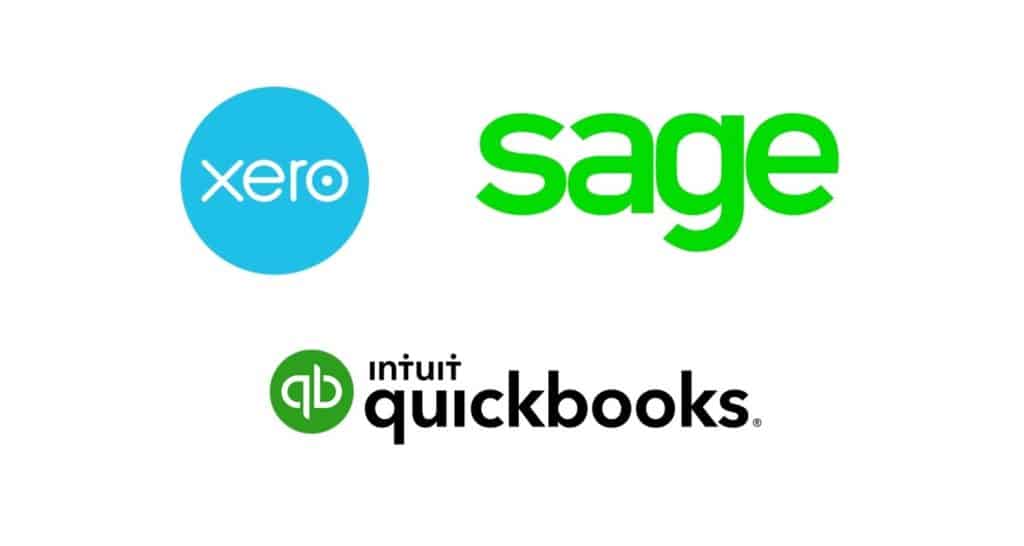In our accounting series of podcasts ‘What is the best accounting software for your construction company’, we discussed Xero, Sage and Quickbooks in detail, highlighting the advantages and disadvantages. Now, we take a look at how you can choose which construction accounting software is best suited to your individual business.
Considerations to make before choosing your construction accounting software.
Product Company Fit
The product has to fit the company. This can’t be your accountant’s decision. A lot of accounting practices will have a favourable accounting software, and the majority of staff will be trained in one software, and their preference as the accounting company will be to place you as the construction company into their ecosystem and therefore use their preferred system. But that doesn’t really make sense for you.
So you need to expand beyond the accountant. You need to go out and speak to other construction companies that are similar to you. Maybe you need to do a quick spot-check with a couple of other accountants. And what you really want to establish is, what do companies that look like you use? Why do they use them? What does this accounting software offer you in terms of where you want to be?
Does this particular software package offer you what you’re going to need in terms of where you want to be in two or three years time?
Company Buy In
What you need to consider is, who are the key users going to be of the accounting package, and what problems does it solve for them, or what problems do you need it to solve for this particular user? Bring them into the decision. You want to get an understanding of how things are operating today within the particular users that are going to be using the software. What impact will this have on them so you can get them involved in the decision-making process.
Let’s say you’ve got somebody that looks after invoicing. Someone that does a bit of purchasing, and you’ve got two or three key users of the product around the company. Whether you should bring them all together and make everybody involved in the decision-making process, or involved in setting the criteria of what they expect when you implement the new software, or if you’re looking to implement new software, what are the key points?
One of the topics that came up across our accounting series of podcasts was remote working. Kevin, who was the guest on our Xero episode shot the episode from an empty office, and he talked about how most of his clients are in a similar position. People are working remotely.
So how important is that to you, to have that flexibility? And one of the reasons we would think about that when we went through Sean’s episode is that a lot of Sage 50 is partly cloud. QuickBooks, for example, most people that still have QuickBooks still have desktop. It’s mostly online. But are you getting the full cloud functionality, so that certain users can have the ability to work remotely and have all the tools that they need to do so?
Integration
So what integration does this package offer?
You have to always consider that accounting packages serve multiple industries. So it’s never going to get into the nitty-gritty that you want to get into. It’s never going to tick every single box. So you have to take a bit of the good with the bad here, but plugins are the answer to this.
So if the system falls over in a certain area, what are they offering from an integration point of view that allows you to solve that problem? So having a deep look at what they offer in terms of integrations and plugins that you may require going forward?
Training & Support
Xero relies heavily on their partner program. So if you’re going to a partner that you have an existing relationship built with, they’re going to support you or are you buying Xero direct and looking after some setup yourself, and therefore you’re going to rely on Xero’s online support? Sage has quite a good support network, they also rely heavily as well through their channel partners and QuickBooks offer 24/7 support.
What’s important to your business? Ask yourself, what level of support do companies like mine receive. What you’re trying to get to here is setting expectations. If you contact them today with a support issue, when should you expect to receive support on that particular issue?
What if you get a new employee? Is that going to be an ongoing cost? So if every new employee comes onto the system, is this something that’ll be picked up? Will it be self-taught? Is it something that you’re going to have to advertise, that they must be experienced on this particular software package? Or is it a fact that you’re going to have to re-train people each time you employ, and is that a cost that you need to consider too?
Price
Most of the accounting packages, when you look at them at face value, are quite similar in price, but it’s when you start to add on things like maybe you need more users, or for this to work, it’s going to be a certain plugin. It’s not what the list price is, it’s going to be more like the training costs, the add-on costs.
You need to be thinking about what you believe you’re going to need on this particular product going forward, and then make a decision about what does that process look like in terms of when you add on plugins, when you add on users, what does the end-game look like?
You need to be making a list of criteria of what’s really important to you as a company. So plugin, add-on, extra project feature, for example. It’s going to give you an extra layer of detail.
It’s very difficult to make that informed decision without getting your hands onto these systems. You don’t yet know what certain plugins may do, because you’re using something different today. Maybe you’re using a different accounting software plus Excel, and you’re looking at this other option where it’s fully integrated. The best option would be to get a demo and find out.



